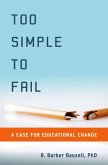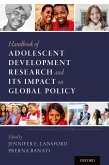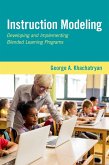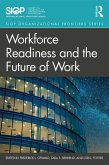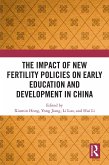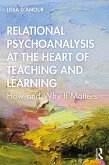Too Simple to Fail presents a startling dissection of what is wrong with our educational system and a set of simple, common-sense steps for improving it. This simplicity, Bausell argues, characterizes both the schooling process and the science of education, as witnessed by legions of researchers who have discovered precious little that their grandmothers didn't already know. Yet surprisingly, based upon the author's own studies and a review of the past 30+ years of educational research, these discoveries boil down to a simple but powerful theory: The only way schools can increase learning is to increase the amount of relevant instructional time for all students. Here, Bausell demonstrates that classroom instruction is hopelessly obsolete, as are our current testing practices, both contributing to the widening opportunity gap between socioeconomic and racial groups. But with an understanding of what is wrong with education today comes the revelation that the answer to these deficiencies has been available to us all along in the form of the tutorial model, the most effective instructional paradigm ever developed. Only in recent years has it become feasible to simulate this extremely effective instructional medium as a universal option that, in effect, would allow schools to provide relevant instruction as a rule and not an exception. If implemented, a new world of opportunity and potential will finally be available to children, whose learning is so crucial for our future. The new model presented in this book has implications for identifying not only what is wrong with the way we educate our young, but also why it is wrong, and how the educational process can be made more efficient, effective, and fair.
Dieser Download kann aus rechtlichen Gründen nur mit Rechnungsadresse in A, B, BG, CY, CZ, D, DK, EW, E, FIN, F, GR, HR, H, IRL, I, LT, L, LR, M, NL, PL, P, R, S, SLO, SK ausgeliefert werden.



